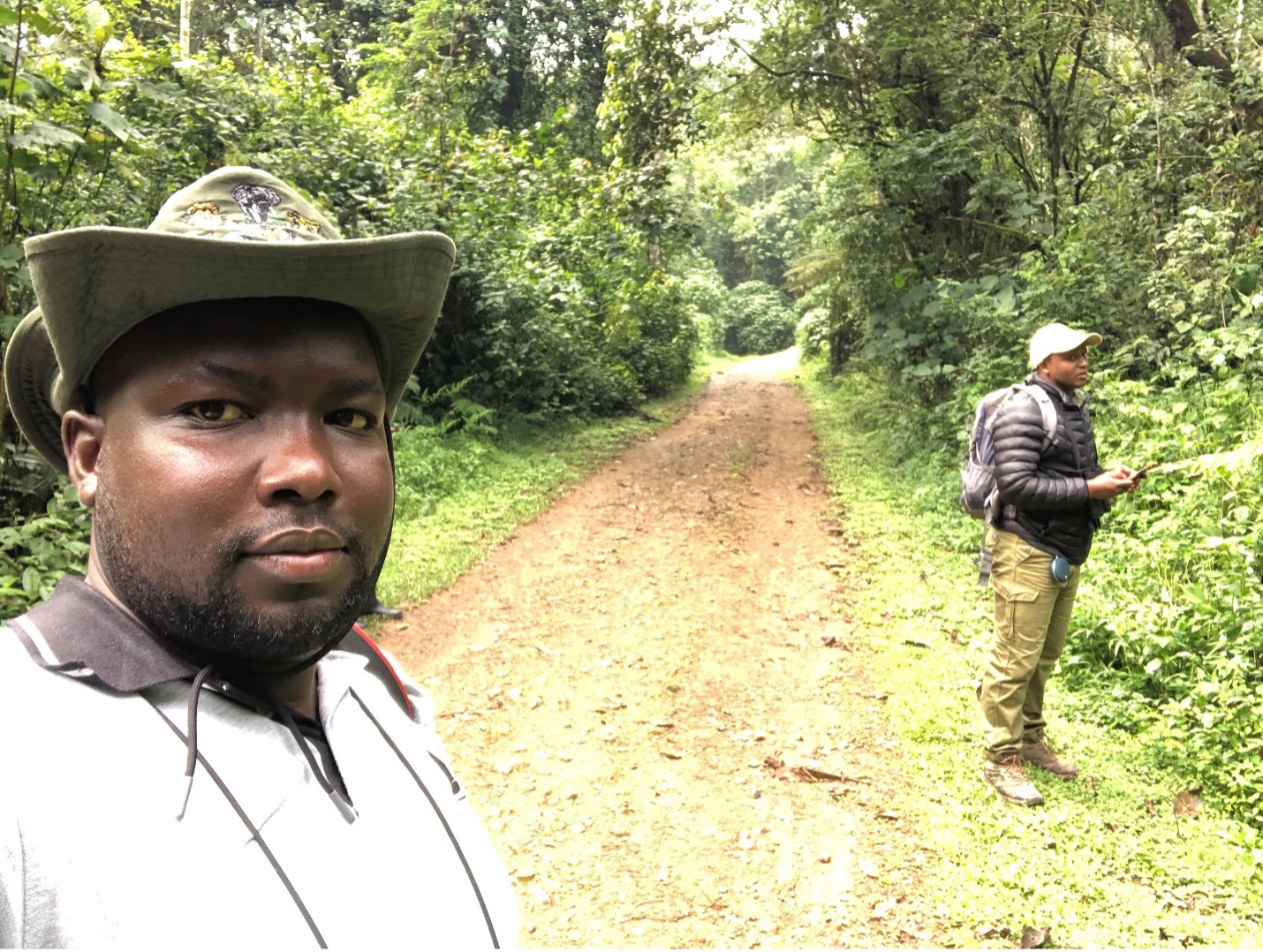
Rukundo Davis, eBird regional reviewer for Uganda
Did you know there are over 2,000 volunteer eBird reviewers around the world? Volunteer reviewers play an important role ensuring the eBird database remains reliable and accurate for science and conservation (learn more about the eBird review process). eBird is incredibly grateful to our volunteer reviewers for their dedication to eBird’s data quality.
The eBird Reviewer Spotlight helps you get to know eBird’s volunteer reviewers a little better. These articles are written in the reviewer’s own words and reflect their experiences as reviewers, eBirders, and members of the birding community. In this spotlight, Rukundo Davis, eBird regional reviewer for Uganda, describes how he became interested in birds, his experiences as an eBird reviewer, and how he contributes to the Ugandan birding community.
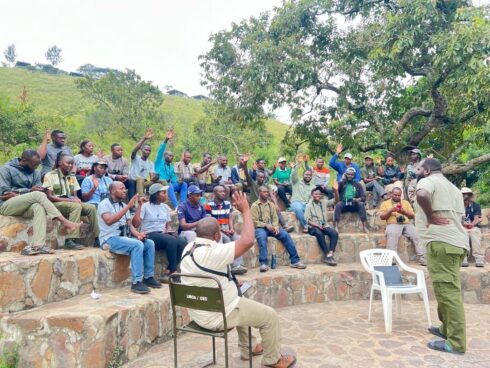
Leading a class on eBird
eBird Reviewer Spotlight: Davis Rukundo
Hello, my name is Rukundo Davis and I am a nature safari guide who specializes in birding. I come from a tourism family but hold a Bachelor’s degree in Computer Science. Being in nature has always been a hobby of mine from childhood and learning that I could also earn a living from doing something I loved made it all the more worthwhile. I got into birding when I was about 5 years old. I used to watch all the David Attenborough documentaries at home like: The Life of Birds, The Life of Mammals and so many others. I was always curious about the creatures living in the trees at home and it so happened that one afternoon I found a fallen nest on the ground with some eggs in it. Although I was expecting this to be a lizard nest, a day later, birds hatched out of the eggs. I went back to my documentaries and tried to follow how the rescued birds were treated and what they were fed, while hiding this from my parents as they wouldn’t have allowed me to raise the birds. I used to feed the chicks milk, water, corn, posho (maize flour cooked into a dough), bread crumbs and anything else I had seen birds eat. I taught the fledglings how to fly and helped stretch their wings until they were able to navigate on their own. I then placed the nest back in the tree and started carefully leaving the birds there to interact with other bird species that came around. Eventually, they learnt to fly and took off with the next flock that came through the compound. It is after this point that I got curious about the other interesting species out there. Here is some additional information on abandoned nests.
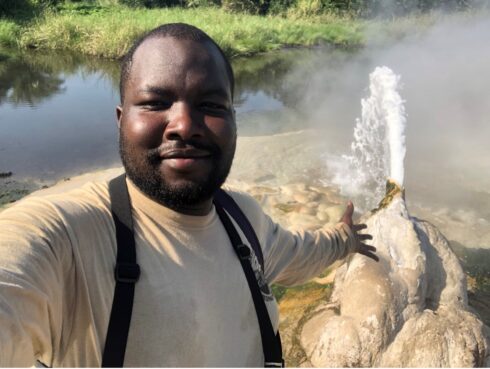
A visit to the hot springs in Semliki Forest
How did you become an eBird Reviewer?
I got introduced to eBird in 2017 by another guide (Crammy Wanyama) who was using the platform while conducting a Bird Uganda Safaris trip. It wasn’t a popular platform in the country at the time but gradually, many birders started using it. After some years using the platform, I and a few birders realized that some observers submitted wrong data and there was no follow-up to correct the sighting. We then saw the need for a native regional coordinator that had ready access to the bird sightings and could also follow up on other local birders using the platform, I was introduced to Ian Davies and Cullen Hanks. We met a few times on virtual platforms and exchanged messages in 2021. In April 2022, I and two other birders finally got signed up as reviewers for Uganda.
What work do you do as an eBird Reviewer?
I check submissions from observers that are flagged by the eBird filter and make sure that the data is actually correct. I also look at the hotspots used in the submission. I also have to write to the observer explaining why their observation was flagged and offer alternatives where possible.
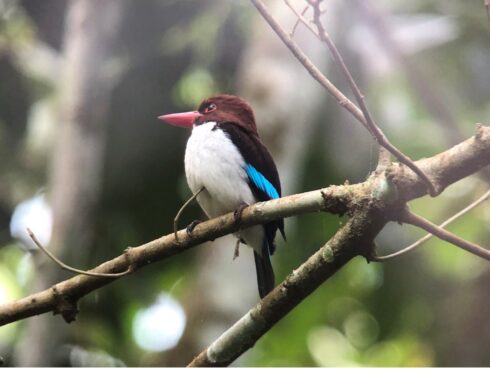
My favorite bird picture, the Chocolate-backed Kingfisher
What’s special about eBird in Uganda? How might the review process differ from other regions?
eBird in Uganda has brought together the birders that were individually scattered in the different regions of the country. It also prompted many youths to get interested and join birding after seeing how eBird had helped other birders.
The review process could be different in that the Ugandan observers on the platform are known to everyone in the birding community, which makes it very easy to follow-up and ensure that their observations were correct.
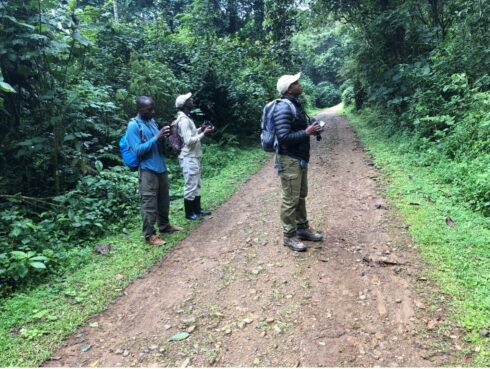
Birding in Bwindi Impenetrable Forest.
What challenges are associated with your work as an eBird Reviewer?
Previously wrong observations that were accepted before are a challenge now that we know that the species in question can never be found where it was reported to have been sighted.
The splits and name changes and taxonomical changes have been an issue as one observer can make a submission and the reviewer may not be aware that the sub-species in question is actually the species found in his region.
What is unique about the birding community in Uganda?
The birding community of Uganda is a small community but very united in the conservation efforts of our Avian species. We are very honored to still have the individuals that began birding in the country with us to mentor the next generation of birders and many others that will come after that. We are very quick to get involved in conservation efforts and have even spread the message to other countries. The Uganda Women Birders is one such efforts that our community birthed and has spread the message across borders.
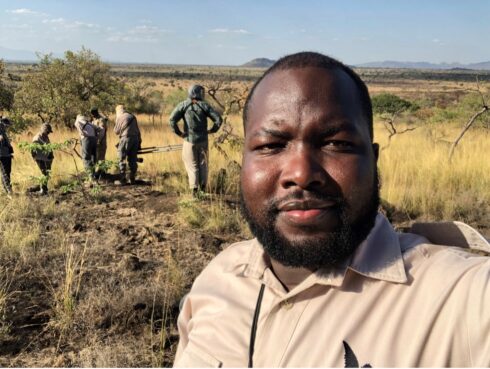
Pian Upe Wildlife reserve
What can eBirders do to help with the review process?
If eBirders could follow the procedure and add the proper comments or media about species flagged by the filter instead of just copying from a book, it would help the review process greatly.
eBirders can also help by ensuring that their submission is as accurate as possible as we have seen cases where observers copied species from a field guide.
eBirders can also help by making sure the submitted checklists do not span a large area as it is possible to change habitat in Uganda every 5-10km, meaning the species will be different.
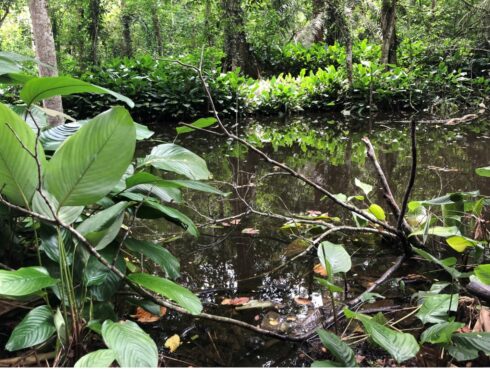
One of the places I love to go birding in, Semliki Forest National Park
Anything else you’d like to share?
I want to thank and appreciate the creators of this platform because it has connected our community to the whole world. Birders in Uganda are beginning to appreciate the species that can be seen in other countries and some have even gotten business opportunities from the platform.
I would also like to thank my mentors like Mr. Herbert Byaruhanga, Mr. Johnnie Kamugisha and the many others who made it possible for young birders like myself to grow loving birds and keep on spreading it to the next generation.
Finally, come and Explore Uganda, the Pearl of Africa, home to over 1000 bird species and be amazed by the beautiful scenery and landscapes we have to offer.
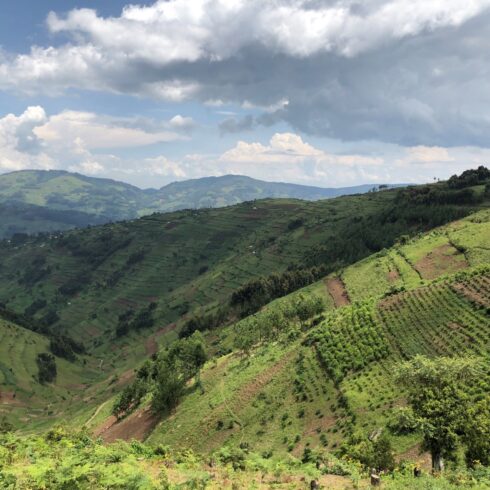
One of the other places I love to go birding, Bwindi impenetrable forest National Park
